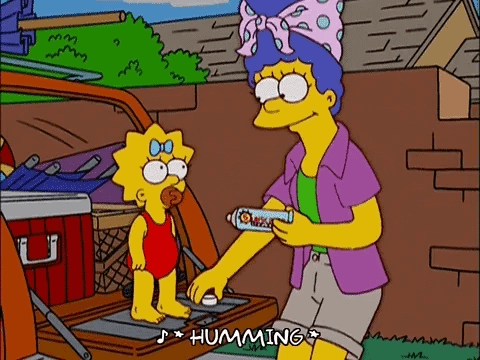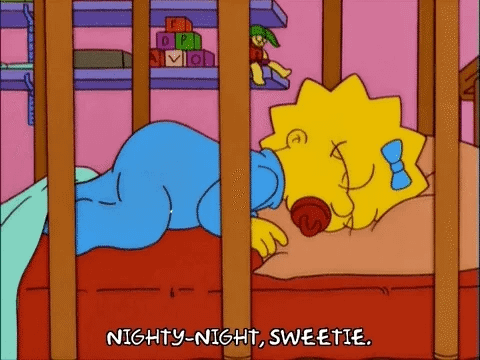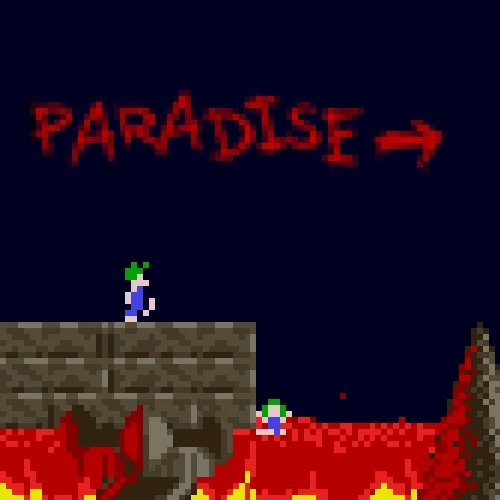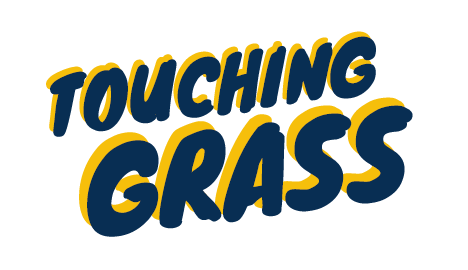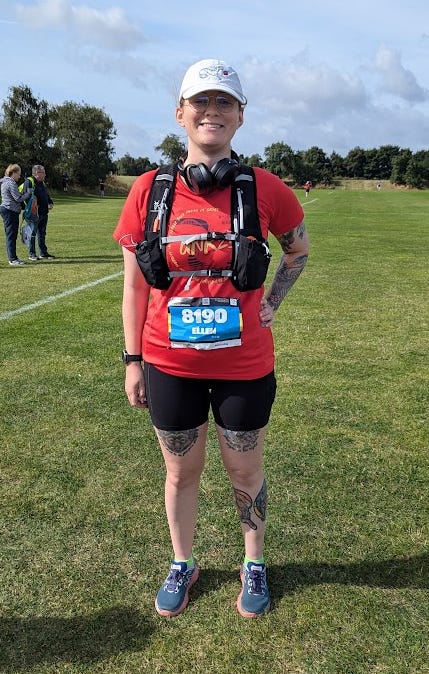I don’t write about motherhood very often despite it being a massive part of my life. I was wondering why, and I realised this unveiled a difficult truth I am hesitant to admit. I have an internalised prejudice against mothers who talk about being mothers. So often, we see women become mothers and lose who they were before. They give up hobbies, sports, friendships, careers and other freedoms to dedicate their lives to raising children. This was my worst fear when I became a mother.So much so that I probably went too far the other way. I didn’t admit it was hard; I didn’t talk about the vast weight of motherhood with anyone except a few close friends who have experienced the same thing. I don’t want people to perceive me as another mother who complains, so I just don’t say anything at all. But why shouldn’t mothers complain? If we don’t complain, no one will hear us. And we risk becoming even more invisible than we already are. In the early days of raising my daughter, I read a few books about motherhood, desperately hoping to hear from people who had lived through (and survived) one of the hardest times of my life. By far, the best book I read was Matresence by Dr Lucy Jones. I’ve written about this before, but it is essentially a memoir backed up with peer-reviewed studies and anthropological insights into why motherhood is so hard for us now and how things have changed over the last few generations. One key area Jones explores is the concept of a village. It takes a villageYou’ve heard the saying before: It takes a village to raise a child. This is inherent in our very beings, as demonstrated by the snippet below from Matresence about a nomadic tribe in the south-western Central African Republic.
But many modern mothers in the Global North, like myself, don’t have a village. Yet, we are expected to embrace many parts of parenting that other cultures hold dear. Natural birth, attachment parenting, and co-sleeping are all inherent to cultures that live communally. Women can co-sleep with their babies and breastfeed all night because they have ‘alloparents’ (other adults within the community) who can provide support throughout the day. Like so many other mothers, I had it in my head that I would do all those things but also run a business, pay a mortgage, and raise dogs… all while having only my husband to fall back on most of the time. It doesn’t add up.Attachment parenting is a philosophy that emphasises the importance of staying close to your child, both physically and emotionally. Babywearing, breastfeeding, co-sleeping, and gentle parenting are all part of this philosophy. The concept of attachment parenting was developed by the American paediatrician Williams Sears, who essentially stole it from other cultures and whacked his own label on it (a classic colonial move). Sears spoke to two Zambian women about the power of babywearing, and later on, he nicked a few ideas from how indigenous people in South America raised their children. Need I point out that this concept of parenting, so heavily placed upon mothers and a standard that is virtually impossible to maintain while living in western society, was founded by a man? A man who never experienced birth trauma first-hand, or felt tiny needle teeth bite his nipples or had to ask if it’s “okay to have a shower?”. Sears did have children (many of them), but it’s still funny to me that a man could colonise a parenting concept from indigenous women and then somehow level it as an unattainable standard for Western women, all while selling millions of books. A sleeping timebombAbout eight months into my motherhood journey, I hit a wall. My baby only slept in two-hour chunks, and I was co-sleeping and nursing all night. I also made all of her solid food from scratch and worked one day a week (while Craig took the day off to look after her). I fell into a deep pit. I couldn’t see a way out. Like my birth journey, I had a vision for how this first year of motherhood would be - and that vision was fading fast. Craig wanted to move away from co-sleeping and move our baby into her own room. We already had a cot set up in my old office, so there was somewhere for her to go. But I couldn’t grasp the idea of putting her into a cot and leaving the room unless she was fast asleep. I tried a few times, but she woke up every time I put her down. I was losing hours and hours, evening after evening. Breastfeeding her to sleep, then gently placing her in the crib, begging her to stay asleep. Then, Craig staged an intervention. He could see what this was doing to me. He knew me better than anyone. But he also knew I would not change my ways. I would not let her cry or even whinge for a second. He wanted to try a sleep training method called the gentle Ferber Method. In this method, you leave the baby in the cot and check on them after three minutes, five minutes, and ten minutes. Even if they are unsettled, you just wait until those minutes are up. I cried. I sat in the armchair with my noise-cancelling headphones, and I cried. The breastfeeding advice pages I followed on Instagram would often share the view that ‘babies can’t self-soothe’ and that leaving your child to cry, even for a minute, was abuse. I fully believed this. But, as a highly sensitive and determined person, I also seek comfort in facts. In my quest for answers, I found a few scientific studies that affirmed Craig’s approach as the right one. Many infants can learn to self-soothe between six months and their first birthday, and studies show this practice can lead to longer sleep stretches. As is often the way in the cult of parenting, mothers are scared. We’re scared of what we are doing to our children. Are we damaging our children in any way by taking this approach? There aren’t many studies, but those that do exist have found no impact on a baby’s attachment in the short and long term after gentle sleep training. But do you know what the studies do show? They show that poor baby sleep is directly linked to maternal depression and poor mental health. So, Instagram mamas are telling us that babies can’t self-soothe, so we must continue to follow practices that are proven to negatively impact mothers, just to maintain the holier-than-thou perception that we are great mothers? I cannot be a great mother or even a good one, if I am depressed, unwell or exhausted. My baby needed me to be well. And this was a step we had to take to make me better. The same goes for medical births, formula feeding, early childcare or any other controversial topic within the world of parenting. If following that path makes you unwell, it won’t make you a better mother. No matter what the cult of Instagram mothers tell you. That brings me back to the attachment parenting bloke. Instagram pushes so many parenting concepts on us, often taken from books written by men. There’s an interesting chapter in Matresence about hypnobirthing (you guessed it, coined by a man) and how women have fallen into the trap of refusing medical support for their births in favour of natural methods— having been persuaded to do so by a woo-woo concept coined by someone who never even had the physical ability to give birth to another human being! When I started writing this, I didn’t think I would go all in. I don’t like talking about sleep training, for example, because I still hold a small amount of internalised shame about it. I do feel guilty for those two nights when my baby whinged in her bed for three minutes at a time. Even though she went from sleeping two hours to all night within three months, she has been a fantastic sleeper ever since (she’s two now!). Despite all of that, I still feel guilty. But why should I? There is no other phase of life where we are made to feel so guilty for protecting our own mental health. If we all treated ourselves like new mothers do, then we’d be queueing at the cliff edge like Lemmings. If anyone deserves our empathy, it’s the woman pushing a pram with a crying newborn, having taken two hours to get out of the house, not knowing when her next shower will be, hanging on the promise of a luke-warm Costa Coffee will be the highlight of her day. Yes, motherhood is a choice. But that doesn’t mean we should feel shit for making that choice. I am still working on that. On Sunday, I ran the Scottish Half Marathon with Michelle | Specky Scribbler and Daire O S . I’ve completed plenty of half marathons before, but this was one of the hardest. It was so dull, with limited spectators and lots of sneaky hills. Regardless of the struggle, I am proud we did it - and it’s less than three weeks until the Great North Run now. I’m raising money for Pancreatic Cancer UK in memory of my mam, Miriam, who passed away from this vicious cancer in 2019. Any donation is hugely appreciated! Things I’ve also enjoyed this week: 📚Sunburn by Chloe Michelle Howarth - Coming of age tale about Lucy, a young girl growing up in rural Ireland. Lucy realises she has feelings for another girl, sparking a journey of exploration and guilt, forcing her to make big choices at such a fragile age. I enjoyed this one, although it wasn’t my favourite. 📺 We Might Regret This (BBC) - Hilarious new sitcom from Kyla Harris about being “disabled before it was cool.” See you next week, Ellen x 🎧I’m on Spotify!If you like the audio version of this newsletter, you can listen to them all over on Spotify. Here’s last week’s:
💌 About this emailI’m Ellen, and I write about mental health for the chronically online. I am a freelance copywriter, strategist and web designer, and I work from home with my husband, Craig, at Content By The Sea. We have two rescue greyhounds, Potter and Harmony, and a toddler. I started this newsletter in March 2020 and have sent over 180 emails; currently, I have over 1,200 subscribers. I write about a wide variety of topics, including diet culture, my love of running, jealousy, my life falling apart, mam guilt, and this dystopian world we all live in. 💛 How you can support meIf you like reading my weekly emails, you can give me a kickback in one or more of the following ways: 📨 Share this post 📬 Subscribe for free (if you haven’t already!) 💬 Leave a comment on this newsletter 💰Sign up to be a paid supporter of the newsletter for just £4 a month or £40 a year. The current perks of being a paid subscriber are receiving one extra Touching Grass email each month with all of my top films, shows, podcasts and books. And, most importantly, you are supporting me to keep writing this newsletter week after week. You're currently a free subscriber to Conversations By The Sea. For the full experience, upgrade your subscription. |

